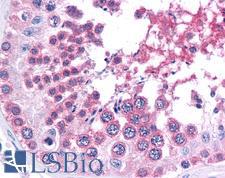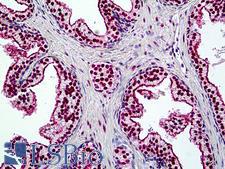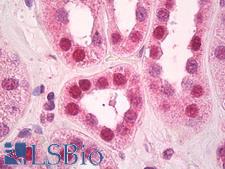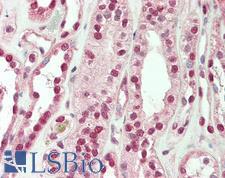Login
Registration enables users to use special features of this website, such as past
order histories, retained contact details for faster checkout, review submissions, and special promotions.
order histories, retained contact details for faster checkout, review submissions, and special promotions.
Forgot password?
Registration enables users to use special features of this website, such as past
order histories, retained contact details for faster checkout, review submissions, and special promotions.
order histories, retained contact details for faster checkout, review submissions, and special promotions.
Quick Order
Products
Antibodies
ELISA and Assay Kits
Research Areas
Infectious Disease
Resources
Purchasing
Reference Material
Contact Us
Location
Corporate Headquarters
Vector Laboratories, Inc.
6737 Mowry Ave
Newark, CA 94560
United States
Telephone Numbers
Customer Service: (800) 227-6666 / (650) 697-3600
Contact Us
Additional Contact Details
Login
Registration enables users to use special features of this website, such as past
order histories, retained contact details for faster checkout, review submissions, and special promotions.
order histories, retained contact details for faster checkout, review submissions, and special promotions.
Forgot password?
Registration enables users to use special features of this website, such as past
order histories, retained contact details for faster checkout, review submissions, and special promotions.
order histories, retained contact details for faster checkout, review submissions, and special promotions.
Quick Order
PathPlusTM SMARCA4 / BRG1 Antibodies
SMARCA4 (Transcription activator BRG1) is a SWI/SNF protein that activates and represses transcription. It is involved in chromatin remodeling and is required for activation of genes repressed by chromatin. It is involved in embryogenesis, spermatogenesis and tissue development, including proper smooth muscle formation and synapse development. It is also involved in oligodendrocyte differentiation. Loss of SMARCA4 results in developmental defects such as incomplete or dysfunctional gastrointestinal tracts, open ductus arteriosus of the heart, as well as severe neurological dysfunction. Furthermore, inherited mutations in SMARCA4 have been linked with Coffin-Siris Syndrome in humans, characterized by developmental delays and intellectual disability. In cancer, SMARCA4 is the most commonly mutated chromatin remodeling ATPase, with mutations found in a broad spectrum of tumors such as lung, adrenal and pancreatic cancers as well as medulloblastomas. In immunohistochemistry, SMARCA4 has nuclear positivity in all tissues throughout the body.
References: Molecular and Cellular Biology. 31 (13): 2618–31, PMID: 21518954; Development. 139 (6): 1133–40, PMID: 22318225; Proceedings of the National Academy of Sciences of the United States of America. 109 (5): E252–9, PMID: 22233809. PLoS One. 8 (1): e55119, PMID: 23355908; Cold Spring Harbor Perspectives in Medicine. 6 (8): a026930, PMID: 27413115; Mol Cell Biol. 2016 Jan 1; 36(1): 70–83, PMID: 26459759; Cell. 2013 Jan 17;152(1-2):248-61, PMID: 23332759; Front. Mol. Neurosci. 2017. DOI: 10.3389/fnmol.2017.00243
4 PathPlusTM Antibodies




☰ Filters
Products
Antibodies
(4)
Type
Primary
(4)
Target
SMARCA4 / BRG1
(4)
Reactivity
Human
(4)
Mouse
(3)
Rat
(1)
Bat
(1)
Chicken
(1)
Dog
(1)
Hamster
(1)
Horse
(1)
Monkey
(1)
Pig
(1)
Rabbit
(1)
Application
IHC
(4)
IHC-P
(4)
WB
(3)
IP
(2)
Peptide-ELISA
(1)
Host
rabbit
(2)
mouse
(1)
goat
(1)
Product Group
PathPlus Neuro
(4)
Isotype
IgG
(1)
IgG2a
(1)
Clonality
monoclonal mc
(1)
polyclonal pc
(3)
Clone
BRG-01
(1)
Format
Unconjugated
(4)
Epitope
aa75-125
(2)
C-Terminus
(1)
aa2-14
(1)
Publications
No
(3)
Yes
(1)

Neuroscience
SMARCA4 / BRG1 Mouse anti-Human Monoclonal (C-Terminus) (BRG-01) Antibody
Human
IHC, IHC-P, WB
Unconjugated
0.05 mg/$460

Neuroscience
SMARCA4 / BRG1 Goat anti-Human Polyclonal (aa2-14) Antibody
Chicken, Rabbit, Mouse, Dog, Rat, Hamster, Pig, Horse, Bat, Human, Monkey
IHC, IHC-P, Peptide-ELISA
Unconjugated
50 µg/$440

Neuroscience
SMARCA4 / BRG1 Rabbit anti-Human Polyclonal (aa75-125) Antibody
Mouse, Human
IHC, IHC-P, IP, WB
Unconjugated
50 µl/$485

Neuroscience
SMARCA4 / BRG1 Rabbit anti-Human Polyclonal (aa75-125) Antibody
Mouse, Human
IHC, IHC-P, IP, WB
Unconjugated
50 µl/$460
Viewing 1-4
of 4
product results










